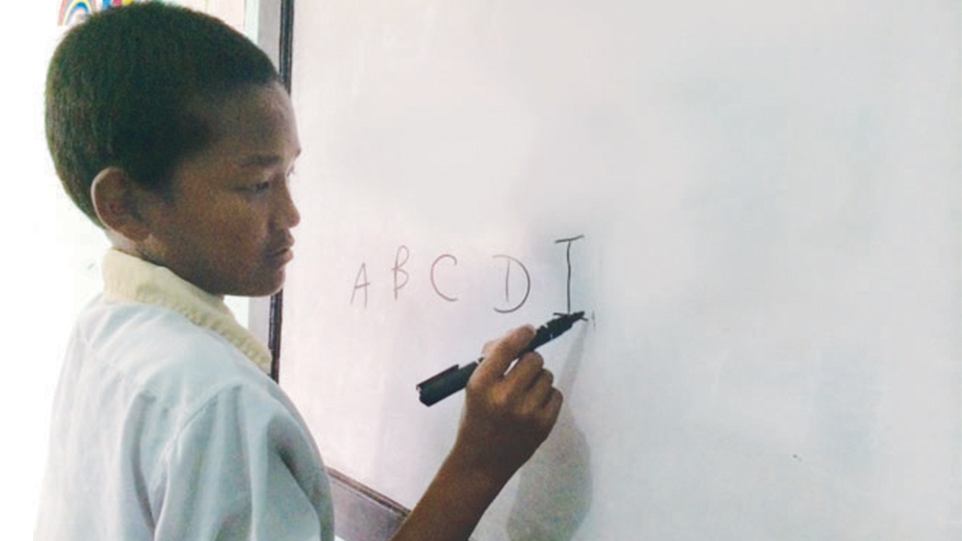Dorje: From Brickloader to Artist
February 28, 2017Dorje was born in the village of Anikot in Nepal. His mother abandoned him when he was very young, leaving him in the care of his abusive father; later, his home was destroyed during heavy flooding. After moving in with his grandmother and an uncle, he attended school briefly, but his family’s dire economic circumstances forced him to drop out after the first grade to seek employment.

Dorje first began working on a neighbor’s land, where he would labor outside for up to ten hours each day. After learning of work at a brick kiln in a different village (check), he ran away to begin a new job as a “donkey man,” loading heavy bricks into a sack placed on the back of a donkey. His workday typically began at 5 a.m. and ended at 4 p.m., and his monthly salary was 3,000 Nepalese rupees—about $28 USD. He was 11 years old.
When GoodWeave inspectors found Dorje, he was immediately removed from the premises, and attempts were made to locate his parents—neither of whom could be found. Unfortunately, it was determined that to place him back in the care of his uncle’s family was to return him to vulnerability, and to risk having him go to work at the kiln. Dorje agreed that the best and safest place for him to live was at Hamro Ghar (check), the transitional home/school overseen by GoodWeave Nepal, where former child laborers receive the education, health care, personal freedom, and compassionate supervision they deserve.
Because of his ordeal, Dorje began his new life at the transitional home in a fragile state of mind. Distant and prone to outbursts, he was reluctant to trust anyone around him. His personal difficulty was compounded by his lack of education: Unable to read or write, he was essentially shut off from the world around him emotionally, psychologically, and developmentally.
But thanks to the dedication of his counselors at GoodWeave Nepal, Dorje made slow but steady progress on all of these fronts. Today, he’s known among his teachers, counselors, and schoolmates as a friendly and outgoing child—not to mention a fierce competitor at Carrom, a popular board game. He attends classes regularly, and has been described by one counselor as “a very determined child who loves to write. When he’s given a writing assignment, he spends a very long time trying to nail it, and often he does.” He’s also a skilled artist, and has expressed an interest in pursuing a vocational career that will allow him to utilize this talent.
Under the care of his counselors and teachers, Dorje is being given special attention to cultivate his love of writing and art, and to improve his reading skills. In the meantime, his sense of optimism about his own future has grown in direct proportion to his prospects. “I’m less angry about everything,” he is now able to say. “And I’m hopeful.”
